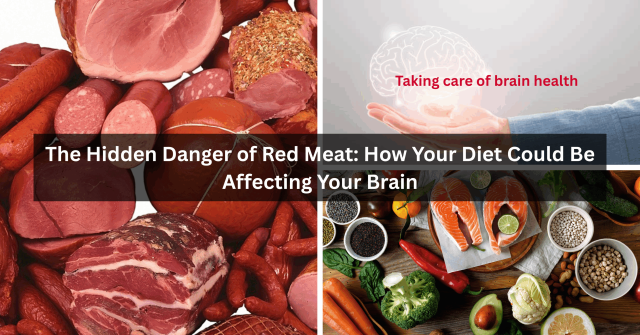
You might not realize it, but your love for bacon, bologna, and hot dogs could be taking a toll on more than just your waistline. Emerging research is raising alarms about a connection between processed red meat consumption and cognitive decline. A study published in Neurology found that people who regularly eat processed meats face a 13% higher risk of developing dementia compared to those who consume these meats sparingly. The implications are clear: what you eat today can shape your brain health tomorrow.
How Red Meat Impacts Brain Health
Recent findings from a large cohort study following over 133,000 participants suggest that consuming just a small portion—about three ounces—of processed red meat daily (equivalent to two slices of bacon, 1.5 slices of bologna, or one hot dog) can significantly elevate your risk of dementia. Dr. Daniel Wang, assistant professor of medicine at Brigham and Women’s Hospital and Harvard Medical School, explains: “Higher processed red meat intake correlates with worse cognitive function and faster cognitive decline.”
Even modest reductions in consumption can make a meaningful difference. The study shows that swapping one daily serving of processed red meat for plant-based proteins, like nuts or legumes, was associated with a 19% lower risk of dementia and could slow cognitive aging by over a year.
Why Processed Red Meat Can Harm Your Brain
While the study is observational and doesn’t prove causation, the biological mechanisms provide insight. Processed meats are loaded with saturated fats, nitrites, and N-nitroso compounds. Saturated fats contribute to cardiovascular disease—a known risk factor for cognitive decline. Nitrites, used in preservation, can convert into N-nitroso compounds in the body, which are linked to inflammation, metabolic disturbances, and even cancer. Together, these compounds can disrupt brain function and accelerate cognitive aging.
Smarter Protein Choices for a Healthier Brain
Shifting toward plant-based proteins like beans, lentils, and nuts not only reduces dementia risk but also supports overall brain health. Replacing even one serving of processed red meat daily can significantly lower dementia risk while slowing the pace of cognitive decline. The nutrients in plant-based foods—vitamins, minerals, fiber, and antioxidants—help protect your brain from oxidative stress and inflammation, while avoiding the harmful compounds found in processed meats.
Broader Dietary Patterns Matter
Reducing red meat alone isn’t the whole story. Diets like the Mediterranean diet, rich in fruits, vegetables, whole grains, legumes, nuts, and healthy fats, provide comprehensive benefits for both heart and brain. Nutrients like PUFA and vitamin E, along with low sugar intake, support cognitive function and protect neurons. Healthy fats from olive oil and fish supply omega-3 fatty acids, essential for memory and mood regulation. Whole grains and fiber stabilize blood sugar, preventing spikes that can harm the brain over time.
Practical Tips for Cutting Down on Red Meat
Start Gradually: Replace one meal a week with a plant-based option, then increase from there.
Explore Plant Proteins: Beans, lentils, tofu, and chickpeas are versatile alternatives for hearty meals.
Try Poultry or Fish: Chicken, turkey, and fatty fish like salmon provide protein without excess saturated fat.
Boost Flavor Without Meat: Use herbs, spices, garlic, smoked paprika, and soy sauce to make vegetarian meals satisfying.
Add Fiber: Vegetables, fruits, and whole grains keep you full, aiding in the transition away from heavy meats.
Protect Your Brain with Better Choices
Your diet is more than fuel—it’s a major factor in your long-term cognitive health. Even small reductions in processed red meat can make a difference. Pair this with plant-based proteins, fiber-rich foods, and a balanced dietary pattern like the Mediterranean diet, and you’re giving your brain the nutrients it needs to stay sharp. As Dr. Wang emphasizes: “If you reduce your red meat intake—even a little—you will see cognitive benefits. Start sooner rather than later for the best results.”

Leave a Reply